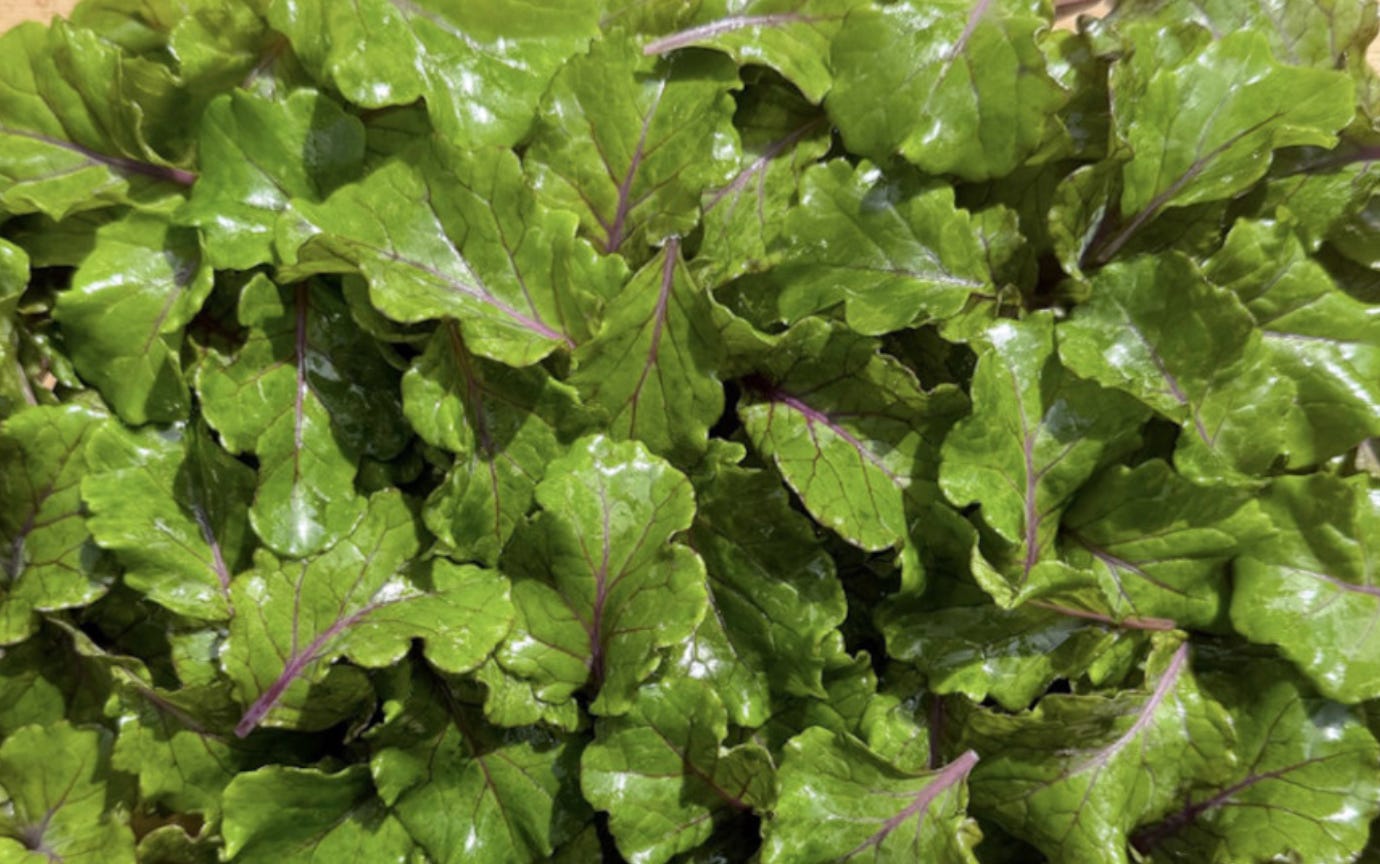A New Kale Comes to Vermont: The Story of "Unicorn Kale"
While Unicorn Kale won’t officially hit the market until 2026, Vermont farmers have already played a crucial part in its development. The leaves are described as having a “crunchy, succulent texture.”
What Is Unicorn Kale?
Imagine a kale that doesn’t need massaging before you eat it. A kale that’s sweet instead of bitter, with bright purple stems against vivid green leaves. That’s Unicorn Kale, a new hybrid vegetable developed by Cornell University plant scientist Phillip Griffiths.
The variety is a cross between a golden collard and a red curly kale, combining the tender, crunchy texture of collards with the attractive ruffled appearance of traditional kale. Griffiths started the breeding project around 2014 after recognizing that the kale market had “hit a wall”—consumers were tired of tough, bitter greens.
The result is striking: flat leaves with big ruffled edges, vivid green to golden-green coloring, and bright purple stems and veins. More importantly for Vermont salad lovers, the leaves are described as having a “crunchy, succulent texture” with low bitterness.
Vermont’s Hidden Role in Developing the Variety
While Unicorn Kale won’t officially hit the market until 2026, Vermont farmers have already played a crucial part in its development.
High Mowing Organic Seeds in Hyde Park conducted field trials of the hybrid, growing it under an anonymous cultivar number before it had a commercial name. These trials were conducted in sandy loam soils typical of Vermont’s river valleys, providing the breeder with essential data about how the plant performs in northeastern growing conditions.
The feedback from Vermont testers was enthusiastic. Growers noted the variety was “easy to bunch” thanks to its “very upright” growth habit—a significant advantage for small farms where harvest labor costs are a major expense. The assessment that stuck: “Different from anything on the market”.
Vermont’s agricultural influencers have also been part of the promotional groundwork. Mara Welton, president of Slow Food Vermont and a farm owner, participated in Culinary Breeding Network showcases featuring Unicorn Kale, helping introduce the variety to the state’s chefs and lead farmers before its general release.
Not All “Unicorn” Kale Is Created Equal
Vermont farmers ordering seed need to be careful: there’s another plant called “Unicorn” that’s completely different.
In the United Kingdom, “Unicorn” refers to a kale/rape hybrid used for livestock feed and game cover, bred by companies like Limagrain. This forage variety is fibrous and designed for high biomass production to feed sheep and cattle—not for human salads.
The Cornell culinary version is genetically distinct and intended for fresh eating. Vermont growers can find the correct seed through Johnny’s Selected Seeds, which lists it as exclusive in their 2026 catalog.
Growing Unicorn Kale in Vermont: What Farmers Need to Know
For Vermont growers planning to add Unicorn Kale to their 2026 plantings, there are some important considerations.
Soil and Water Requirements: The variety prefers soil pH between 6.0 and 7.5 with high organic matter. Critically, “consistent moisture will produce the highest-quality leaves”—the tender foliage is more sensitive to drought stress than traditional waxy kales.
Spacing Options: The compact, uniform growth habit allows for flexible planting: 12-18 inches apart for full-size bunching, or high-density direct seeding for baby leaf production.
The Cold Hardy Trade-off: Here’s the catch for Vermont growers: Unicorn Kale is “less cold hardy than other kales”. Unlike varieties like Winterbor that can be harvested into December or overwintered, Unicorn Kale will likely suffer cold damage earlier in the fall. However, it produces “good crops under warmer, summer conditions”, making it ideal for filling the salad greens gap during July and August when other greens may bolt or turn bitter.
Best Season for Vermont: Spring, summer, and early fall plantings will likely work best, with the variety positioned as a warm-weather alternative rather than a winter staple.
The Market Opportunity
The name itself is a marketing strategy. The “Unicorn” branding leverages the cultural trend of colorful, Instagram-ready foods. As breeder Phillip Griffiths put it: “Who wants a kale salad when you can have a unicorn kale salad?”
For Vermont’s farm stands, CSAs, and farmers markets, the variety offers several advantages:
Visual Distinction: In a competitive market environment, the bi-color contrast of purple stems on green leaves serves as an effective differentiator against standard green kale.
Labor Efficiency: The upright growth habit reduces soil splash on leaves and allows for faster harvesting—direct cost savings for small-scale operations.
New Customers: By removing the bitterness and chewiness that drove consumers away from kale, the variety could attract buyers who previously avoided the vegetable.
Distribution in Vermont
Johnny’s Selected Seeds is the primary distribution channel for the 2026 season. Given High Mowing Organic Seeds’ involvement in trials and their distribution of seed racks and customizable collections to farm stands throughout the region, Vermont growers will likely have multiple access points for obtaining seed.
What Happens Next
Unicorn Kale is slated for full commercial release in 2026 seed catalogs, appearing in late 2025. Vermont shoppers should expect to see the variety at farmers markets, farm stands, and in CSA boxes beginning in summer 2026.
For Vermont’s agricultural sector, this represents a strategic opportunity: a high-value, visually distinctive product that aligns with the state’s brand of premium, artisanal food production. The variety that Vermont farmers helped test in Hyde Park is about to become available to growers across the state.
Early adopters who master its cultural requirements—particularly moisture management and seasonal timing—could gain a competitive advantage in Vermont’s crowded direct-to-consumer marketplace. The convergence of Cornell’s breeding innovation and Vermont’s rigorous testing ground has produced a vegetable designed for exactly the kind of markets where Vermont farmers excel: places where quality, novelty, and story matter as much as price.



